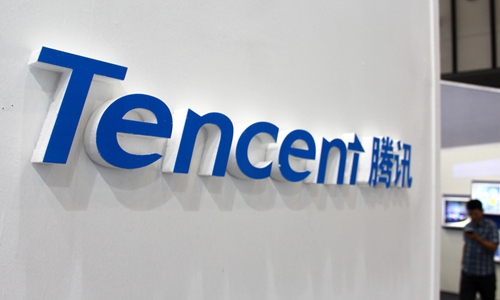COMMENTS / COLUMNISTS
China is not shutting down internet firms as some foreign media suggest

Illustration: Tang Tengfei/GT
A media report that sharply criticized the vast online gaming industry over adverse effect on the population continues to send shockwaves through financial markets as well as influencing the public conversation.
Two days after the report was published on Tuesday, shares of Tencent Holdings, whose online gaming business was mentioned in the article, plunged 3.9 percent on Thursday. Since Tuesday, Tencent shares have lost nearly 6 percent.
On Chinese social media platforms, the debate over whether the gaming industry was to blame for excessive gaming by some youngsters continues to heat up, with some suggesting that the issue is a multi-faceted one that requires all parties to work together, while others echoing the article's labelling of the online gaming as "spiritual opium."
Excessive gaming is a real problem in Chinese society that has increasingly come into public view. Given the seriousness of the issue, it is natural and understandable for some, including parents, to criticize the gaming industry over what many are calling deliberately addictive products. However, it is also reasonable for many to call for a multi-faceted response from all parties - the private sector, parents and regulators - to address the problem.
There might be some debate over the cause and the response to the problem of excessive gaming, but there is no dispute over the urgent need to address the problem. It is a fact well-known by industry participants and private sector actors. That's why companies such as Tencent have already put in place anti-addiction measures.
However, due to the ever-escalating tension between China and the US, whenever there is a slight controversy over a specific issue, many foreign media outlets and forces jump on the matter to make it something completely different that suits their bias political narrative which inevitably involves attacking China's policies and regulations.
After the article sparked widespread attention and discussion on Chinese social media, foreign media outlets began to pick-up and run with the story. While many focused on the impact of the article on the share price of Tencent and other gaming companies, many also rushed to depict the move as a sign of Chinese regulators "cracking down" on private internet firms or "going after" the country's business elites.
Most notably, across multiple articles, Bloomberg sought to seize on the issue to smear and attack China's recent regulatory actions against certain internet companies.
"Those actions demonstrated Beijing's resolve to go after private enterprises to address social inequities, seize control of data it deems crucial to the economy and stability, and rein in powerful interests," one article asserted.
"Turns out even the most compliant Chinese billionaires aren't immune to the regulatory onslaught sweeping the world's second-largest economy," another article wrote in the lead, referring to Tencent boss Pony Ma Huateng.
It does not require formal journalistic training and experience to recognize the unprofessionalism and viciousness of these sentences.
For starters, there has been no official action against Tencent or any gaming company or any businessmen so far. These articles are solely based on media report by an official media outlet. Secondly, tightening regulations to address privacy, security and other issues on internet companies is a global trend, including in the US and the EU. Why China's regulatory actions are to "go after" businesses, "seize control" of data, and "rein in" powerful interests rather than address serious issues?
With regard to whether there will be regulatory actions against the gaming industry, I think there is broad consensus that targeted regulatory oversight is necessary. It is expected that certain actions will be taken to address the problem of excessive gaming, including regulatory scrutiny over certain companies. That should not come as a surprise for any party, including gaming companies.
However, does that mean China is intentionally going after private internet companies just to "rein in powerful interests" as suggested by outside media? The answer should also be clear to any reasonable mind. Private businesses and the internet companies remain crucial to China's long-term economic and social development, they may face tight regulations over specific issues as they would anywhere else but they won't be shut down just because they are "powerful." The companies and their investors both domestic and abroad should be reassured of that and push back against ill-intentioned speculation and exaggeration.
The author is the deputy director of the Business News Center at the Global Times. bizopinion@globaltimes.com.cn




